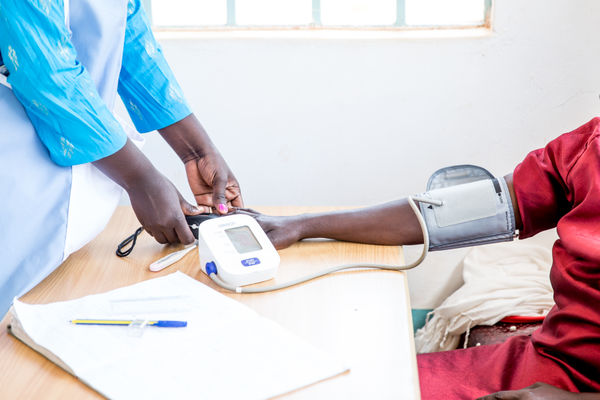Healthcare entrepreneurs in low- and middle-income countries need growth capital to build their capacity and expand their social impact. Yet, because innovations are still nascent, these enterprises are often unable to absorb significant traditional capital. Recognizing this gap in funding, the Pfizer Foundation launched the Global Health Innovation Grants (GHIG) program in 2016 to deploy funding and support for healthcare enterprises around the world. Innovations in Healthcare serves as project advisor to GHIG and measures both grantee and portfolio performance of the program.
The overarching goal of the GHIG program is to support the growth of promising healthcare innovations by testing new models, reaching more geographies, and expanding to different populations. In the first year of GHIG, Pfizer Foundation awarded one-year grants of $100,000 to 15 global health innovators in eight low- and middle-income countries across Africa, Asia, and Latin America. The models, which include both non-profit and for-profit entities, were selected based on innovative approach and potential scalability, the organization’s path to sustainability, and alignment with the Foundation’s charitable strategy.
The research team at Innovations in Healthcare is excited to share key takeaways from the pilot year of the program:
- Grantees demonstrated increased scale of primary care, maternal and child health, and health technology services for rural and low-income market segments. Together, they established more than 70 new points of care, serving nearly 141,000 new patients in 175 new geographic locations.
- The funded entrepreneurs are growing in many ways—they are building new facilities, expanding to new communities with both services and outreach, recruiting and training healthcare providers, implementing leading-edge technology, and securing key alliances to meet performance milestones and enhance their services for underserved populations.
- In addition to increasing the reach of services, these social enterprises also demonstrate increased efforts to measure social impact with a variety of health and quality outcome metrics.
A significant strength of this program, as noted by several grantees, was the flexible funding model: funding based on the needs of local healthcare enterprises. The Pfizer Foundation grantees valued the balance between flexibility and structure, as well as the opportunity to learn alongside their peers as part of a global grantee cohort.
The GHIG program expanded to 20 grantees in its second year to build on the successes of the pilot year. Innovations in Healthcare continues to evaluate grantee and portfolio performance, and provide recommendations for other programs and funders seeking to scale the impact of global health innovation.
For more information on the GHIG program and model, read our white paper, “How flexible funding can drive social enterprise and improved health outcomes” here.
[1] The Pfizer Foundation is a charitable organization established by Pfizer Inc. It is a separate legal entity with distinct legal restrictions

